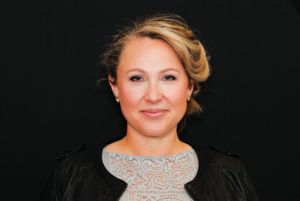Getting to Know Dalya Israel, WAVAW’s Executive Director

Dalya Israel, WAVAW’s Executive Director
Dalya Israel has been with WAVAW for 16 years, and has just completed her first full year as Executive Director.
To mark her one year anniversary, we interviewed Dalya about her time with WAVAW, and what keeps her so connected to the work. Read on to find out what fuels her passion and commitment to create a better world for survivors of sexualized violence!
What brought you to WAVAW?
As a young woman growing up myself and female friends were impacted by many forms of sexualized violence. I was clear on the fact that what had happened to us was not our fault, but I continued to feel as though I needed to be supported to understand something bigger than I had the knowledge about at that time. Being able to go through the volunteer training to start to understand how systems of inequality were set up to impact sexuality and colonize sexualities was very healing for me. It allowed me to make sense of my experiences of sexualized violence.
What Keeps You In The Work?
I think what keeps me in the work is well how much space in my heart and spirit I have for what I know is required to be a survivor. Putting survivors first and then seeking to change the world for survivors is what keeps me in the work. I think genuinely believing that we have the power to change systems and that it is not a sprint, it is a marathon, and to be alongside other people that belief in those things as well is everything to me.
How has society shifted since you have been at WAVAW? What role do you believe WAVAW has played in this shift, and how has this shift impacted survivors?
How society has shifted is that we are actually willing to acknowledge that there is inequality amongst genders and that the way that we value people systemically has a direct impact on their experience of sexual violence. Ten years ago, it was an uphill battle to convince people that it was because of systems of inequality or people not being seen as fully human that made them vulnerable to sexual violence as opposed to it just being some sort of interpersonal conflict. Not only is there more of an understanding of that now, but there is also a willingness to name cultural pieces that influence sex and sexuality whereas before we were really pigeonholed to the idea of rape myths. The fact that we are talking about rape culture and talking about things systemically is a significant shift to me. I would like to believe that WAVAW had a part in that.
What Is The Biggest Thing You Want Society To Understand About Gendered Violence and Gender Equality/What Is The Biggest Misconception About Gendered Violence and Gender Equality?
The biggest misconception is that gender inequality is going to stick out like a sore thumb or something. I think we all have to do the work to really sit down and reflect and take pause to understand how nuanced and insidious, the way that we are socialized to value people more than others and if you hold a position of privilege you really have to do the work to stop and take a look at how that is impacting other people. I think the thing about gendered violence is it has become so normalized by our society, but if people don’t even stop to consider that it isn’t inevitable and track that back to these systems we will continue to have misconceptions about people who are or have experienced violence, which inevitably just turns the responsibility back on that person for the violence they have experience
Describe Why A Diverse Range of Support Services for Survivors Is Critical:
Because we are not all the same. Having programs that respond to systemic barriers is absolutely imperative to healing because we are talking about a power-based transgression of somebody’s body. So to be able to speak truth to power about how somebody might experience the world with racism or colonization or transphobia, that is imperative to somebody being able to heal their spirit, their emotional self, and their physical self.
What Would Happen If WAVAW Didn’t Exist?
I can’t even imagine that world. The only way I can imagine that would be if sexual violence ended, which is a great goal. But I think that we are not only supporting people to heal but also shifting society so for us to not be on the map and offering both services and a different way of thinking about the world that we are living in as it relates to sexual assault, it would be devastating. Not only to individual survivors, but also the community and to the country.
What Would You Want Donors/Community To Know?
We are creative, we are responsive, we are highly attuned to survivors’ needs, we are forward-thinking about ways to engage in dialogue and to shift thinking about how sexual assault shows up in our world.
What Is Your Self Care Routine, Or What Self Care Methods Do You Utilize?
Joy. Hanging with my kiddo and doing things that channel the awe of childhood again, as well as being outside and connecting back to the earth and something bigger than me to feed my spirit.
- On March 12, 2020

